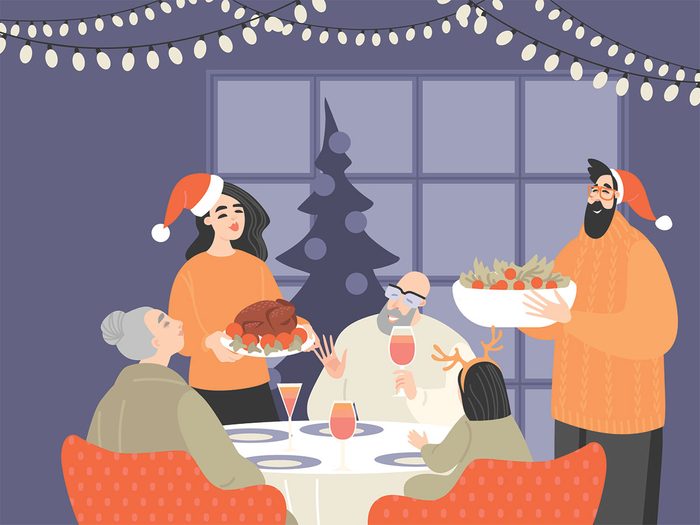
You deserve to have happier holidays—a happier Christmas, a happier Hanukkah, a happier 2019
I grew up in a family that took pride in lavish Christmas preparations, but our attempts to make each year a happier Christmas than the last always failed. At our house, the joy never lasted very long. Every year my father led us in a quest for our loveliest tree ever, which he reshaped to perfection with garden shears and wire. Then he’d start to stagger and slur his words.
At our house, his drinking was as much a part of the festive season as turkey and twinkling lights. With his Christmas tree obsession, he distracted us all from the open secret of his alcoholism. Andy Williams’ holiday song “It’s the Most Wonderful Time of the Year” used to fill me with jealous longing.
Why was Christmas so wonderful for everyone else, when for me it was the season of disappointment?
In even the happiest family, there’s bound to be a holiday season when real life comes nowhere close to soaring expectations that date back to earliest childhood. Not to mention, there’s the stress of the season, too. Maybe you’re missing someone, mourning someone or bracing yourself for bad blood at the holiday table. And the seasonal call to rejoice becomes the heaviest of obligations. The first Christmas after my father died, I forgot that the holiday wasn’t all about me. The very thought of a Christmas tree brought back so many painful memories that I wouldn’t have one in our house—never mind the disappointment this caused my son, Ben.
I’ve since found that even in the saddest of Decembers, there’s always something to celebrate: A homemade card from my son, a snowshoeing trip with my husband in the first snowfall of the year, a visit from a long-lost friend who happens to be in town. Pausing to honour these moments brings comfort—and a measure of joy. Here’s what I’ve learned from role models who know how to brighten the dark times.

Focus on what you have, not what you wish could be
I’ll never forget an essay in The New York Times by a Holocaust survivor. Judith Mandel Novack was in a concentration camp when she and her sisters celebrated their last Hanukkah together. The three teens improvised a menorah with half a potato, some margarine and bits of wool from a blanket. Then they sang their hearts out. “Watching our little candle burn, we were gradually elevated from our misery,” Mandel Novack wrote. “…Whenever I think of that Hanukkah…my heart is filled with joy.” (This might be a great time to start your gratitude journal.)
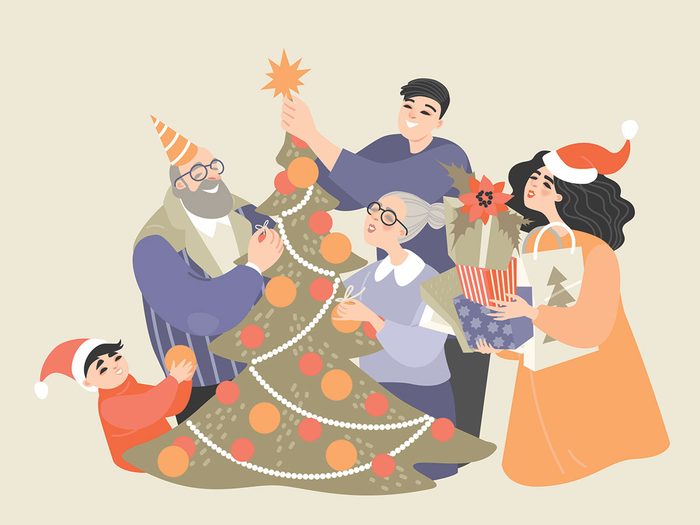
Keep it simple
My divorced friend Donna* was mourning her father’s death when she realized this was no time to fuss with a fresh-cut Christmas tree. Artificial trees had never passed muster with her dad, but her kids would be just as happy with a fake one. No sooner had they trimmed it with homemade decorations than the lights burned out. Twice Donna bought replacement lights, and twice they too burned out. Contemplating their “quiet” tree, she and the kids decided they liked it just fine leading to one of the happier Christmas holidays. So began a new family tradition.
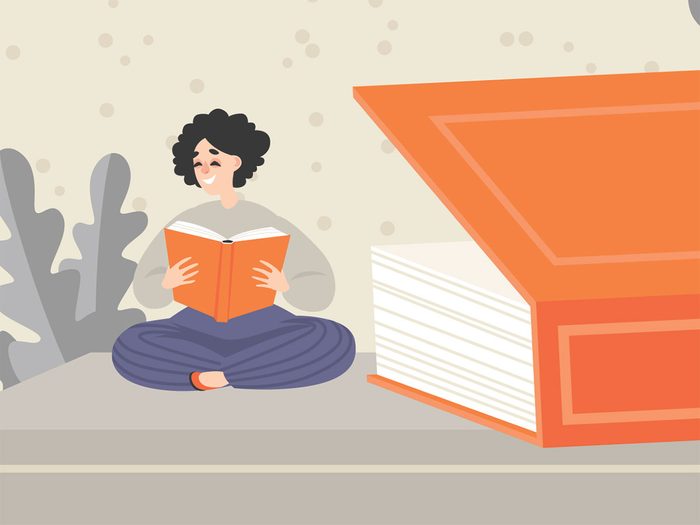
It’s okay to say no – but do it gently
I used to know a woman I’ll call Betsy, who spent every Christmas with her fault-finding, domineering sister. By mutual consent, the two avoided each other 364 days a year. At last Betsy gathered the courage to decline her sister’s Christmas invitation. Over coffee, she told a group of friends what she planned to tell her sister: “You make me feel so worthless, I’m sick at the thought of another Christmas with you.” I was about to cheer Betsy on when the oldest woman in the group proposed a better way to break the news: “Just tell your sister you’ve made other plans.” Of course. Standing up for yourself does not mean crushing someone else.
(Have a toxic relationship in your life? Here’s how to cut the ties with that person.)
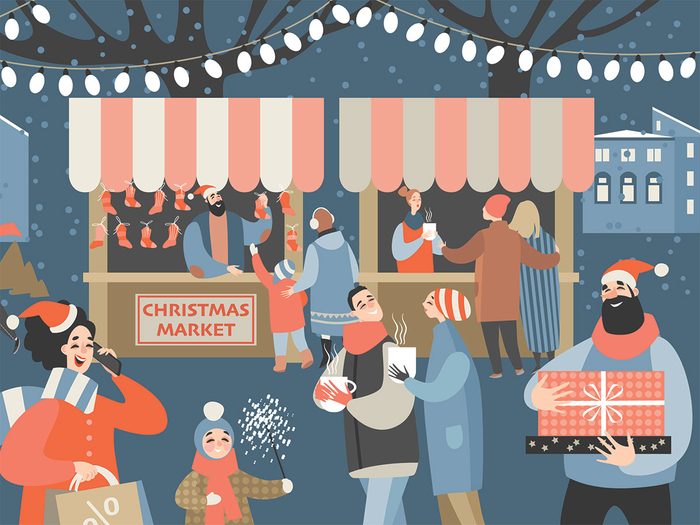
Let your childhood illusions go
In his tragicomic memoir Who Killed Mom?, Vancouver writer Steve Burgess explores his primal, lifelong need to spend the holidays at his childhood home. When his loved and loving parents began their slow descent toward death, he had to give up the illusion that they’d always be around to light the Santa candles. He concludes that the holidays are all about enjoying your loved ones while you can. He writes, “…we can only seize the day, and the next, and the next, as long as they’re still on offer. That sentiment may never end up on a festive card, coming from a wisecracking reindeer. But if you need a reason to have yourself a merry little Christmas, it’s the best one I can think of.” Some times the only way to have a happier Christmas is to let go of what makes the holidays so perfect.
Always trying to be perfect is exhausting. Here is how to relax, especially in the morning.
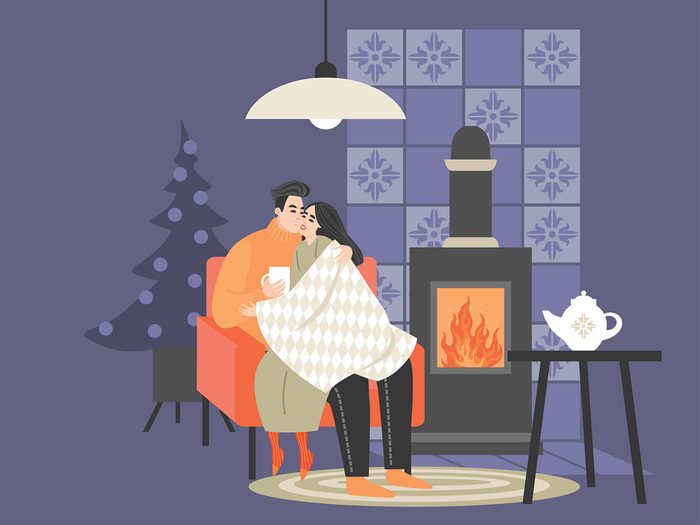
Be fair – even when it hurts
My friend Margaret had three children under the age of four when she ended her marriage to their father. For the sake of the kids, she and her ex made a formal agreement that they would have them on alternating Christmases. When they went to their dad’s, Margaret held her celebration in advance. The date never seemed to matter until 1999, the year of the millennium festivities. Margaret longed to ring in 2000 with the children, but it wasn’t her turn to have them. “I was close to devastated,” she recalls. Tempted to press for an exception to the agreement that had worked so well, she instead decided to toast the millennium in her own way. She and her partner cooked an unforgettable dinner featuring foie gras and lobster, which her children wouldn’t have touched. It wasn’t what Margaret originally had in mind. But in its own way, it was one way to enjoy a happier Christmas.
Now that you know how to have a happier Christmas, learn how to be happier in life in general.
